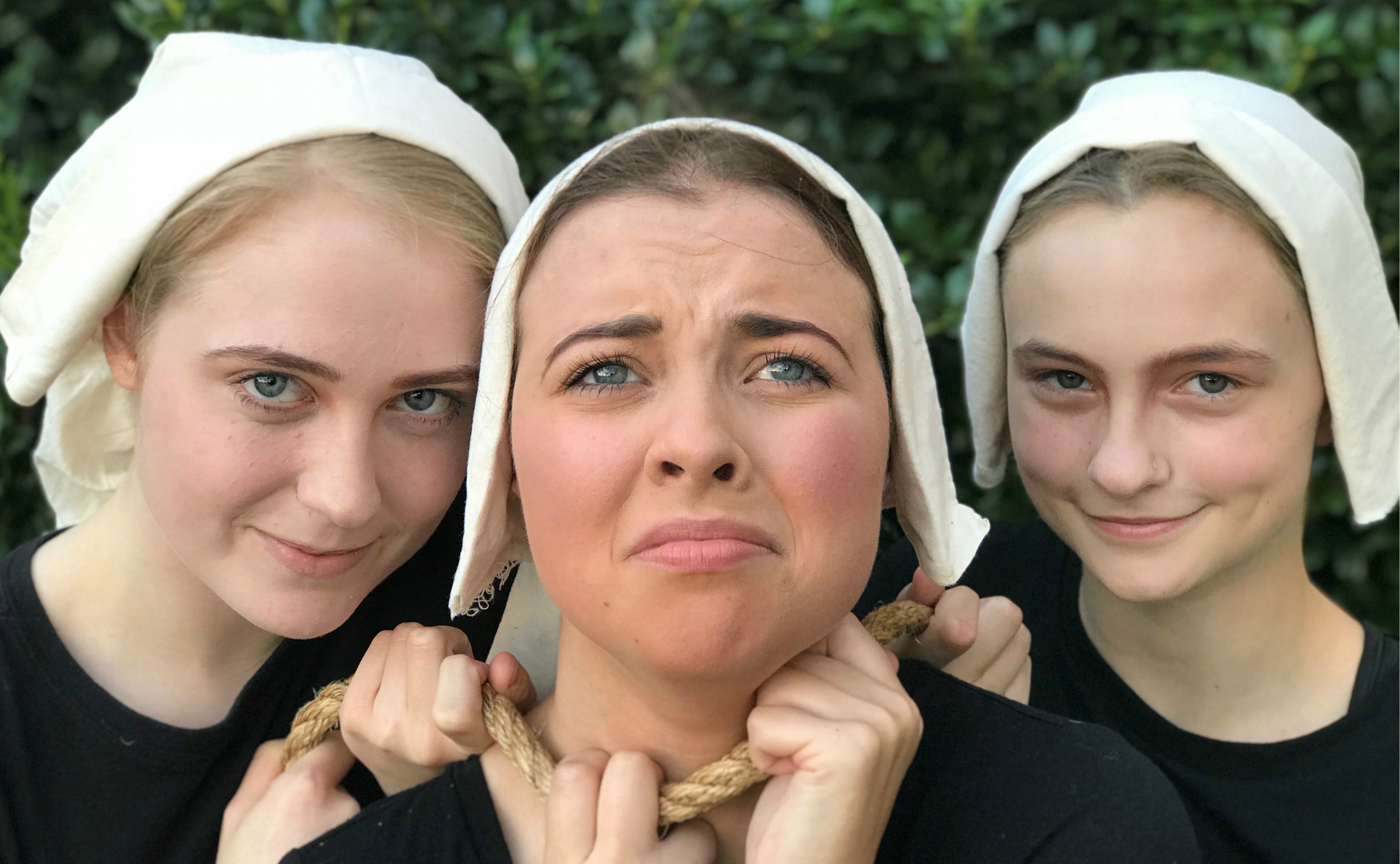
What: “The Crucible,” Arthur Miller’s classic play presented by the University of North Texas’ Department of Dance and Theatre, about the witchcraft trials in Salem, Massachusetts.
When: 7:30 p.m. Nov. 9-11 (Thursday-Saturday) and 2 p.m. Nov. 11-12 (Saturday-Sunday).
Where: University Theater inside the Radio, Television, Film and Performing Arts Building, 1179 Union Circle, Denton, Texas.
Cost: Tickets cost $7.50 for students, UNT faculty/staff and senior citizens and $10 for adults. Group rates are available. Audience members can purchase tickets at the box office, which is open from 1 to 5 p.m. Monday-Friday and one hour before each performance at the Radio, Television, Film and Performing Arts Building. For more information, call 940-565-2428, email dat-boxoffice@unt.edu or visit the Department of Dance and Theatre online.
More information: Visit UNT’s transportation services website to learn more about parking, including new rules. Patrons have two options for parking:
1.) ADA/handicapped patrons may park directly east of the Radio, Television, Film and Performing Arts Building (RTFP) in Lot 50 in the designated spaces.
2.) Patrons may pay to park through the app ParkMobile in the Union Circle Parking Garage.
Media: Download images from the play here and here.
Watch the YouTube video here: https://youtu.be/yovvhqdQsdA.
DENTON (UNT), Texas -- “The Crucible” takes place during the 1600s, but the subject matter is just as relevant today.
The University of North Texas’ Department of Dance and Theatre will present Arthur Miller’s classic play at 7:30 p.m. Nov. 9-11 (Thursday-Saturday) and 2 p.m. Nov. 11-12 (Saturday-Sunday) at the University Theater, in the Radio, Television, Film and Performing Arts Building.
The play focuses on the village of Salem and how a young woman, Abigail Williams, makes an accusation that ignites hysteria. Her former employers, the Proctors, fall prey as she pursues John, her former lover, by offering up his wife Mary as a witch. More people, including John Proctor, are accused of being witches.
The play was inspired by the witch trials of Salem, Massachusetts, in 1692 and the McCarthy era hearings of the 1950s. The show’s director, theatre professor Andy Harris, said the department was looking to do a classic American play and the current political climate made “The Crucible” particularly relevant.
“It’s a good play to do,” Harris said. “The play serves as an apt reminder of what can happen when hysteria rather than careful thought abridges the rights of the accused and when the judicial process falls prey to vengeance and political expediency.”
Junior theatre major Savannah Elayyach said it’s a challenge to play Abigail, who starts the accusations.
“Abigail is vastly different than other girls her age in this time period,” she said. “She’s such a complex young woman, so I’ve had to really break down and unravel all the layers of this character. It allows me to understand her thought process and why she does what she does. There is much more to her than what people perceive as this terrible person.”
The play will use the script used in the 2015 Tony-nominated New York production, which cut a few scenes and added a prologue Miller wrote.
The production also will use innovative staging by using a minimalistic set, which incorporates open set changes using rope as a production concept. In the beginning of the play, the trees and trunks are made of rope. The rope will later define the gable in the attic, the Proctors’ house, a steeple and a jail cell.
The rope is symbolic of what binds the community together and ultimately what imperils its survival as the hangman noose is never very far from the audience’s mind set, Harris said. Meanwhile, the open set adds to modern realism.
“We chose a more abstract setting, perhaps to emphasize the play’s timelessness,” Harris said.
The play will also feature music from five senior students in the College of Music’s composition program. The five work together as a group called “Eclective.”
“The play is incredibly dramatic,” Harris said. “It has a lot to say about our current life. It’s a play about politics, and the abuse of power and the attempt of individuals to stand up against that abuse. Ultimately, it’s about the struggle for a meaningful life, to have a life that stands for something even, if in the end, you are called upon to give up everything. What we can never sacrifice, Miller says, is our integrity.”
Elayyach encourages audiences to attend.
“We can all relate to this play because it leaves the audience wondering, ‘What would I do if I was faced with a social injustice, and how would my actions, or lack thereof, reflect me as a person?’” she said.




